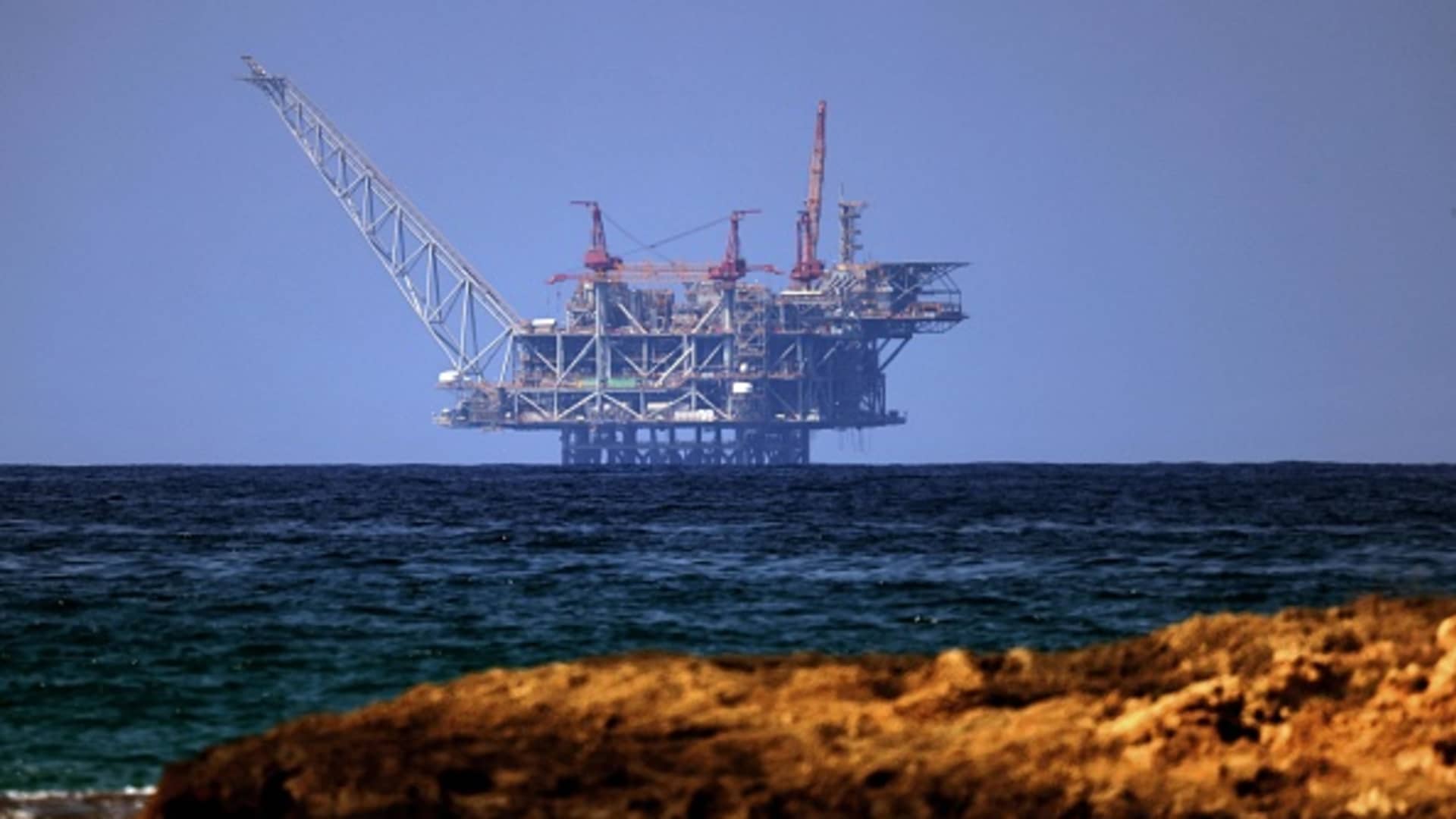A view of the platform of the Leviathan natural gas field in the Mediterranean Sea is pictured from the Israeli northern coastal beach of Nasholim, on August 29, 2022.
JACK GUEZ | AFP
DUBAI, United Arab Emirates — Plans for a 50% stake purchase by energy major BP and the Abu Dhabi National Oil Co. (Adnoc) in Israeli gas producer NewMed Energy are on hold because of regional turbulence, NewMed said Wednesday.
The three companies “have agreed, due to the uncertainty created by the external environment, to suspend discussions in relation to the proposed transaction,” a NewMed statement said.
The company’s share price dropped as much as 8% on the Tel Aviv stock exchange at the start of the trading day.
The statement also said that BP and Adnoc “reiterated [their] interest in the proposed transaction,” indicating that the deal was not permanently off the table. It added the process will remain suspended until it is terminated or talks pick up again.
“There can be no certainty that discussions will resume or that an agreement will be reached in the future,” it said.
Adnoc declined to comment when contacted by CNBC. BP was not immediately available for comment.
The original stake purchase offer was announced almost exactly one year ago in late March and would have led to a joint buy-in by BP and Adnoc to the tune of $2 billion for a 50% stake in the Israeli firm. The move would have granted the British and Emirati oil giants access to Israel’s expanding energy sector and more of the Eastern Mediterranean’s rich gas reserves.
At the time, BP and Adnoc said the deal would result in a joint venture from the two companies to focus on “gas development in international areas of mutual interest including the East Mediterranean.”
The two companies last month announced a separate gas joint venture in Egypt.
The NewMed deal would have been a major political win for Israel, which has been pursuing closer ties with a number of Arab states ever since the signing of the Abraham Accords in 2020, which normalized diplomatic relations between Israel, the United Arab Emirates and Bahrain.
In March 2023, the first Israeli-Arab free trade agreement was signed into effect with the UAE, with the goal of increasing bilateral trade to $10 billion by 2027. That figure was just over $2.5 billion in 2022, not including software and services, according to the Israeli government, making the UAE Israel’s 16th largest trading partner.
Israel has been mired in war in Gaza since the Oct. 7 terror attack by Palestinian militant group Hamas, which killed some 1,200 people in Israel and saw another 240 taken hostage, of which 112 have been freed. Israel’s military response has killed more than 30,000 people in the Gaza Strip, according to the Hamas-run Health Ministry there, and put more than half a million people on the brink of famine, the United Nations says.
The UAE, along with other Arab governments, has vocally condemned Israel’s operations in Gaza.
Hamas and other Islamist militant groups in Gaza as well as the Iran-backed Lebanese militant organization Hezbollah have fired thousands of rockets into Israeli territory, most of which are intercepted by Israel’s Iron Dome missile defense system.

